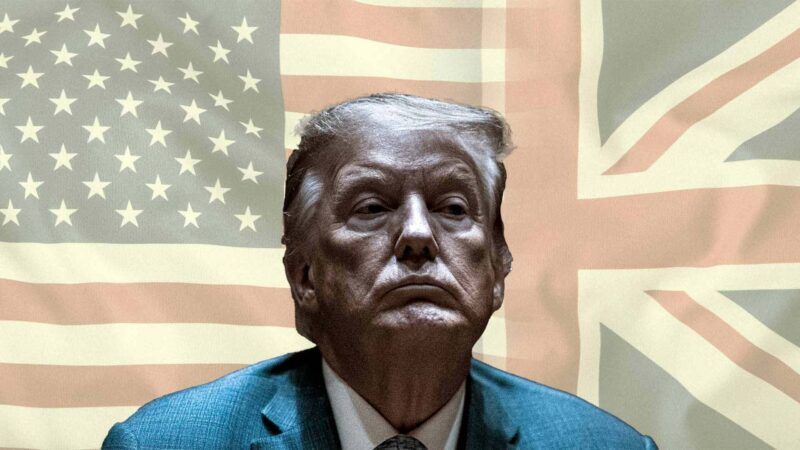The U.K. Trade Deal Screws American Consumers
Residents of the United Kingdom will get lower tariffs, while Americans are stuck paying higher ones.

The White House is hailing a new trade deal with the United Kingdom as "a great deal for America."
But is it a great deal for Americans? The specifics of the deal seem to suggest otherwise.
The agreement maintains the 10 percent universal tariff that President Donald Trump imposed on nearly all imports to the United States. But even the president admits this is a tariff hike on American consumers, rather than a reduction.
The point of comparison should be the average tariff rate on imports from the U.K. before Trump took office. In 2023, the most recent year for which full data are available, the average U.S. tariff on British goods was 3.3 percent.
That means this "deal" charges American consumers a 10 percent baseline tax on goods that were previously taxed at 3.3 percent. That's not a win for free trade or lower prices.
Meanwhile, it is British consumers who will benefit from lower tariffs. According to the White House, the deal means that American exports to the U.K. will now face an average tariff rate of 1.8 percent, down from 5.1 percent before the deal. (In 2023, average U.K. tariffs on American goods were 3.8 percent, so that 5.1 percent figure seems inflated).
The lower U.K. tariffs are certainly good news for some American businesses, which will have easier access to the U.K. economy. American cattle farmers, for example, stand to benefit from the elimination of a 20 percent British tariff on American beef.
But since tariffs are a tax on consumers, it looks like it is British consumers who are the primary winners here, as they will have lower taxes on and more access to American beef (and lots of other things). Meanwhile, American consumers are facing significantly higher taxes on machinery, pharmaceuticals, and other major imports from across the pond.
Take automobiles as an example. The White House is touting one part of the new deal that will supposedly lower tariffs on British-built cars to just 10 percent—for the first 100,000 vehicles imported each year. After that, a 25 percent tariff will apply. That 100,000 figure is based on the number of cars imported from the U.K. last year, so the new rules effectively lock in that level of imports and make any increase prohibitively expensive.
Trying to freeze markets into stasis is bad news for the dynamism that drives economic growth, of course. At a less theoretical level, this is yet another example of the White House claiming to be cutting tariffs on Americans when, in fact, the deal increases them. Before Trump hiked tariffs earlier this year, the U.S. charged just 2.5 percent on cars imported from Britain.
In other words, the "deal" means tariffs on British cars have been quadrupled for American buyers. That's hardly a win for Americans.
If the agreement with the U.K. was supposed to demonstrate that Trump is a master dealmaker who is wielding tariffs to bend the global economy toward Americans' best interest, it falls well short.


Show Comments (89)